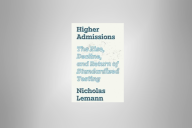You have /5 articles left.
Sign up for a free account or log in.
Should academic freedom extend to non-faculty academics?
The American Association of University Professors (AAUP) 1940 Statement of Principles on Academic Freedom and Tenure states:
"Freedom in research is fundamental to the advancement of truth.”
The concept of academic freedom developed at a time when there was a bright dividing line between faculty and staff. Institutions were growing in size, and supporting students required more and more work from faculty who were already overburdened by greater disciplinary specialization. Staff roles grew to take on this support of students and institutional administration.
Greater focus on disciplinary scholarship created a need for faculty to have the freedom to say things that might be unpopular or problematic. The right to do so was enumerated and safeguarded by the AAUP.
Staff have traditionally not been protected by the norms of academic freedom that cover faculty.
The ecosystem of higher education was much simpler when the AAUP guidelines were first drafted. Instruction and research were the accepted domains of faculty.
Today, the academic ecosystem has become more complicated. The growth of the academic enterprise has meant that many institutions now employ a large number of non-faculty academics, some of whom do research and publish scholarship.
For a growing number of non-faculty academics, the subject of their scholarship is higher education itself.
We have begun to think about our work in learning innovation as an applied academic field. One that transcends the traditional boundaries of service and scholarship, as each is dependent on the other.
This scholarship is intimately tied up with their daily work within campus units such as centers for teaching and learning (CTLs), online and continuing education units, departments of academic computing. (Among many other campus organizations).
The continuous improvement and renewal that non-faculty educators seek for their campus learning organizations is dependent, in many respects, on research and scholarship. Non-faculty academics, such as instructional designers and directors of CTLs (among many others), seek to align their practices with research-based evidence.
These non-faculty academics, however, are not passive receivers of scholarship. In many cases, they are leading the efforts to create new knowledge.
Research and writing on the current state of higher education is highly likely to be critical. This is particularly true of research that is situated at the intersection of learning, technology, and institutional policies and structures.
A priority of the AAUP has been to protect the rights of professors to conduct research.
We wonder what professional organization or association will play a similar role for non-faculty academics?
How might we go about building a movement to extend some of the protections of academic freedom to those academics whose primary appointment is not as a professor?
Is the statement of principle that "freedom in research is fundamental to the advancement of truth” large enough to encompass all the scholars on our campuses?
What do you see as the costs, as well as the benefits, of extending the protection of academic freedom to non-faculty academics?








